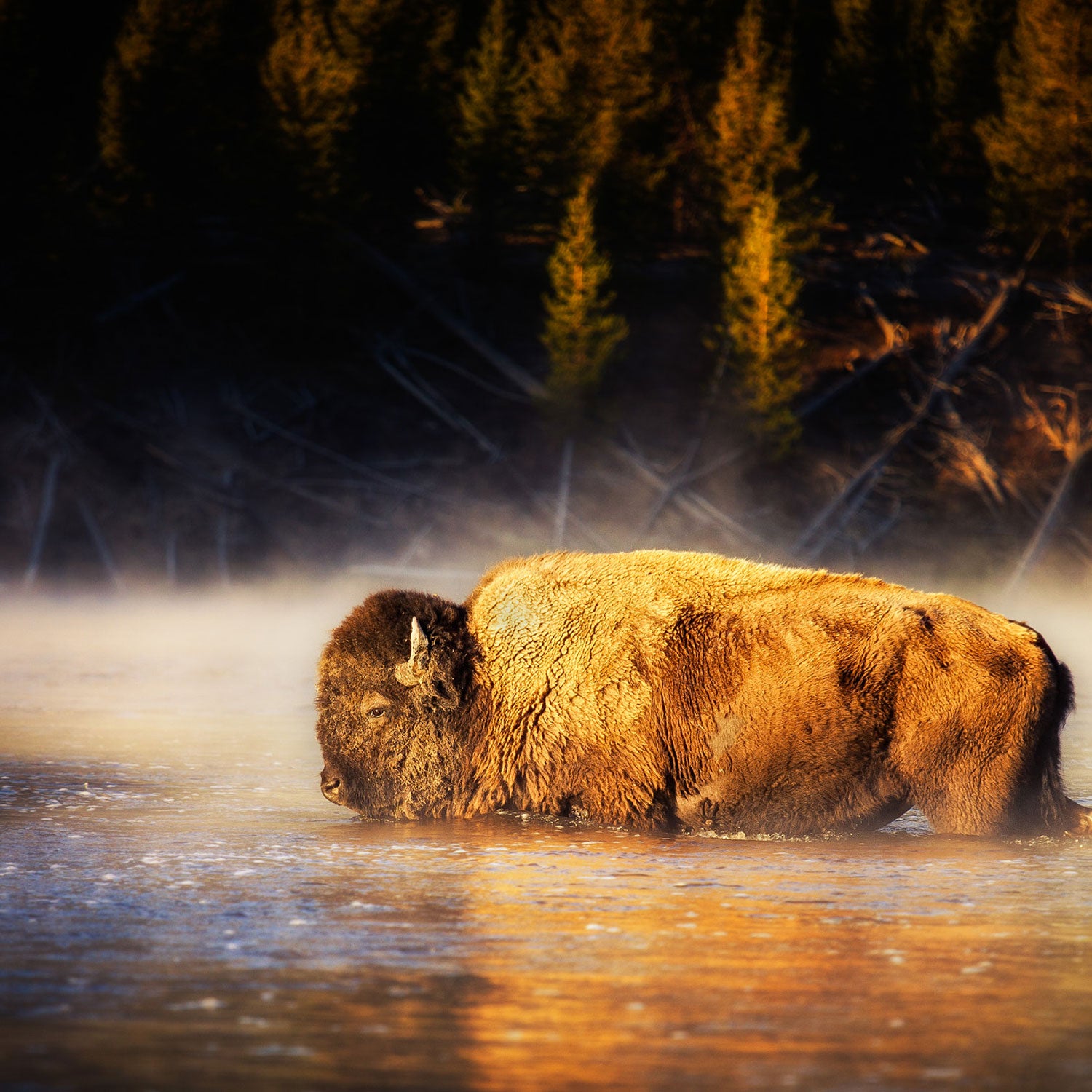That’s the question everyone has been asking since members of the state’s House of Representatives making the collection of data on private lands illegal. It’s a story that’s gained traction since a May 11  that taking a photo in Yellowstone National Park, if you submit it to a government agency, is now a punishable crime.
This melodramatic reading of the law is what most readers are fixating on but, as many commenters noted, it's a straw-man argument. Nobody expects rangers to confiscate your camera for snapping photos of geysers and sunsets. More importantly, though, the misguided uproar has diverted attention from the story's genuinely worrisome subhead: Wyoming has effectively blocked researchers, universities, non-profits, and even the state government from conducting citizen science—the type of research that ensures environmental regulations are properly enforced. It has made citizen data collection almost impossible.
Here’s an example of what’s really going on: The Clean Water Act is designed for citizen enforcement. It allows anyone to file claims against people believed to be polluting or agencies that aren’t upholding environmental protection laws. This type of regulation is important, especially in states with so much open land, like Wyoming, because local governments often don’t have the bandwidth to address wide-scale environmental problems.
Under Wyoming's new law, , private citizens (and government agencies, but more on that later) are essentially barred from collecting the type of data they need to hold violators accountable. And without evidence of wrongdoing it’s almost impossible to file a successful suit. “A legitimate fear is that the new law will criminalize the work of well-intentioned people who only want to see environmental regulations enforced,” says , an environmental law professor at the University of Wyoming. “The existence of these laws is likely to, and probably intended to, deter public participation in public land management.”
But was that really the intention of Wyoming's legislators? It’s been widely reported that Senate File 12 was written as a reaction to a civil suit filed by a group of ranchers against the , an environmental conservation group. According to an article on the news site , members of the non-profit allegedly trespassed on private land in 2014 to collect samples of water containing harmful levels of the bacteria E. coli from cows defecating in streams, without the landowners’ permission. This is true, in part. But , the author of the original draft of the bill, says he was targeting invasive federal agencies such as the  and the , not individuals or nonprofits.
Government agencies regularly collect data on such things as water quality and permits, mining, and hunting licenses to ensure that no laws are being violated. Hicks was concerned that these agencies were overstepping their boundaries and stepping on private property rights. “Local government conservation groups do a tremendous amount of data collection and I was worried about the erosion of private property rights,” Hicks said from his office in Baggs, Wyoming. “Everything I’ve read makes this look like we were out to get revenge, but we drafted this in 2013, long before litigation on the Western Watersheds lawsuit began.”
Still, this doesn’t resolve the confusion the bill has caused, mostly due to the ambiguity of its language. For instance, the bill states that anyone entering onto or crossing open land without permission from the landowner for the purpose of collecting resource data—taking samples of material, photographing, or in some way preserving information—could be prosecuted for trespassing. It’s the term “open land” and the removal of “private” that has led many to think you can now be cited for snapping a photo of bison in Yellowstone. In reality, what this could do is affect stretches of river and roads traversing private property that researchers have traditionally used to access data collection sites.
“One of the concerns we raised with legislators was the unintended consequence of the law for researchers and education groups,” says Lisa McGee, program director at the Wyoming Outdoor Council. “There’s no exception for researchers or educators who are collecting necessary and important resource data.” This could affect everyone from college students to professional ecologists.
(But it’s important to note that anyone collecting data for use in a Clean Water Act enforcement case or similar suit would have to know exactly where their data was collected in order for evidence to hold up in court. Data is generally useless without some sort of indication as to where it was collected so it’s likely researchers would know they were on private land.)Â
In response to the argument that the ambiguous language criminalizes collecting essential data on any land, Hicks explained that the “open land” wording was chosen to avoid redundancies in the bill. “I’m a local government bureaucrat who works for conservation district. I’m one of the green guys,” Hicks says. “All I want is for people to understand the original intent of the bill, which was to curtail government intrusion into citizen’s property rights.”
That it most certainly does. If nothing else, the most important thing about the new law is how much it changes existing civil and criminal trespass laws. It may be difficult to enforce since it’s hard to prove guilt, but it certainly makes it harder for citizen scientists to do important work, and easier for property owners to keep unwanted people off their land.


